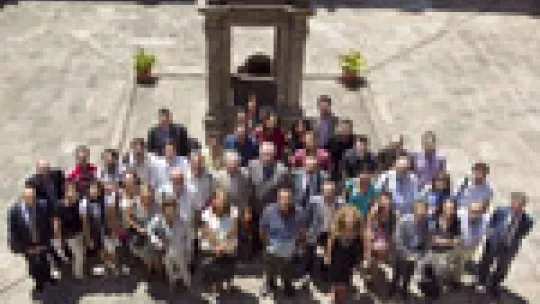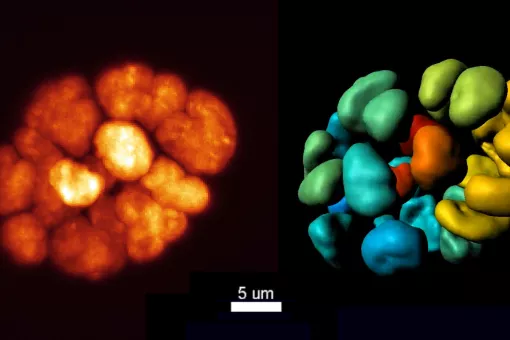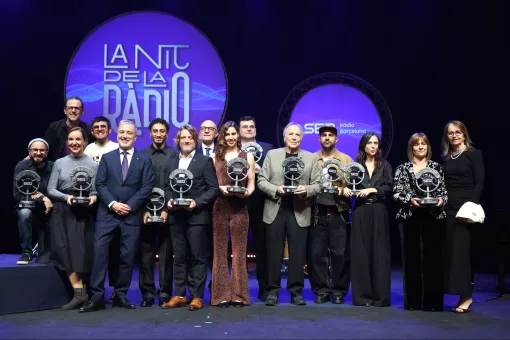Images
The latest findings on neurodegenerative diseases revealed in the 35 projects funded by “2005 La Marató”, including two projects coordinated by researchers at IRB Barcelona, were presented yesterday during the 12th Symposium of the “Fundació La Marató de TV3”.
During the 12th Symposium of the “Fundació La Marató de TV3”, held yesterday at the Institut d’Estudis Catalans, 57 researchers presented the conclusions from their research projects, all funded by the 2005 “La Marató”.
The social impact of neurodegenerative diseases spurred the “La Marató de TV3” to dedicate the 7.72 million euros raised during its 2005 campaign to 35 research projects dedicated to Parkinson’s, vascular diseases of the brain, Alzheimer’s, epilepsy, and other neurological disorders. Among these projects, two were coordinated by researchers at IRB Barcelona. Joan Guinovart, director and group leader at IRB Barcelona, has developed the project “Molecular basis of progressive myoclonus epilepsy of the Lafora type”, devoted to the identification of the molecular and cellular processes that are altered during the progression of this rare and devastating disorder. Ernest Giralt, coordinator of the Chemistry and Molecular Pharmacology Programme at the same institute, has coordinated the project “Structural and dynamic characterization of Aß aggregation. Examination of Aß aggregation peptide inhibitors”, within basic studies linked to the Aß aggregation processes that characterize Alzheimer’s disease.
Thanks to the “La Marató 2005” fundraising initiative, the group of researchers led by Ernest Giralt has developed a powerful methodology to study amyloid fibril formation. Using this technique, they have defined the aggregation properties of Aß40 and Aß42, the main amyloid variants in Alzheimer’s disease. These results have enormous implications regarding our understanding of the involvement of Aß40 and Aß42 fibrils in the neurotoxicity observed in Alzheimer’s and also for the design of therapeutic strategies against this disease.
By discovering an unsuspected link between abnormal glycogen accumulation in neurons and the cellular degeneration observed in the patients with Lafora disease, Guinovart and collaborators have taken a giant step towards deciphering the molecular bases of this rare, disabling and fatal disease. The conclusions of the study, reported during the 12th Symposium of the “Fundació La Marató de TV3”, will have a great impact on the understanding and treatment of a wide range of inherited metabolic diseases that course with abnormal accumulation of glycogen, such as Bickel-Fanconi disease.
The symposium included the second edition of the awards “Divulga la Recerca de la Marató”, organized by the “Fundació Marató de TV3” and the “Fundació Institució Catalana de Suport de la Recerca”. Thirty-three short films produced entirely by visual-media communication students participated in this competition, which aimed to explain the results of the Marató-funded research to general public. Two of these videos focused on Ernest Giralt’s work on the structural biology of Aß aggregates (see video) and Joan Guinovart’s insights into the molecular basis of the Lafora disease (see video).
About IRB Barcelona
The Institute for Research in Biomedicine (IRB Barcelona) pursues a society free of disease. To this end, it conducts multidisciplinary research of excellence to cure cancer and other diseases linked to ageing. It establishes technology transfer agreements with the pharmaceutical industry and major hospitals to bring research results closer to society, and organises a range of science outreach activities to engage the public in an open dialogue. IRB Barcelona is an international centre that hosts 400 researchers and more than 30 nationalities. Recognised as a Severo Ochoa Centre of Excellence since 2011, IRB Barcelona is a CERCA centre and member of the Barcelona Institute of Science and Technology (BIST).





